Zoom
3. Zoom
Students transform their homes into private campuses
Since their private homes have become the new classrooms, UPF students have had to make great efforts to adapt to the new situation, establishing new routines and experiencing virtual teaching for the first time
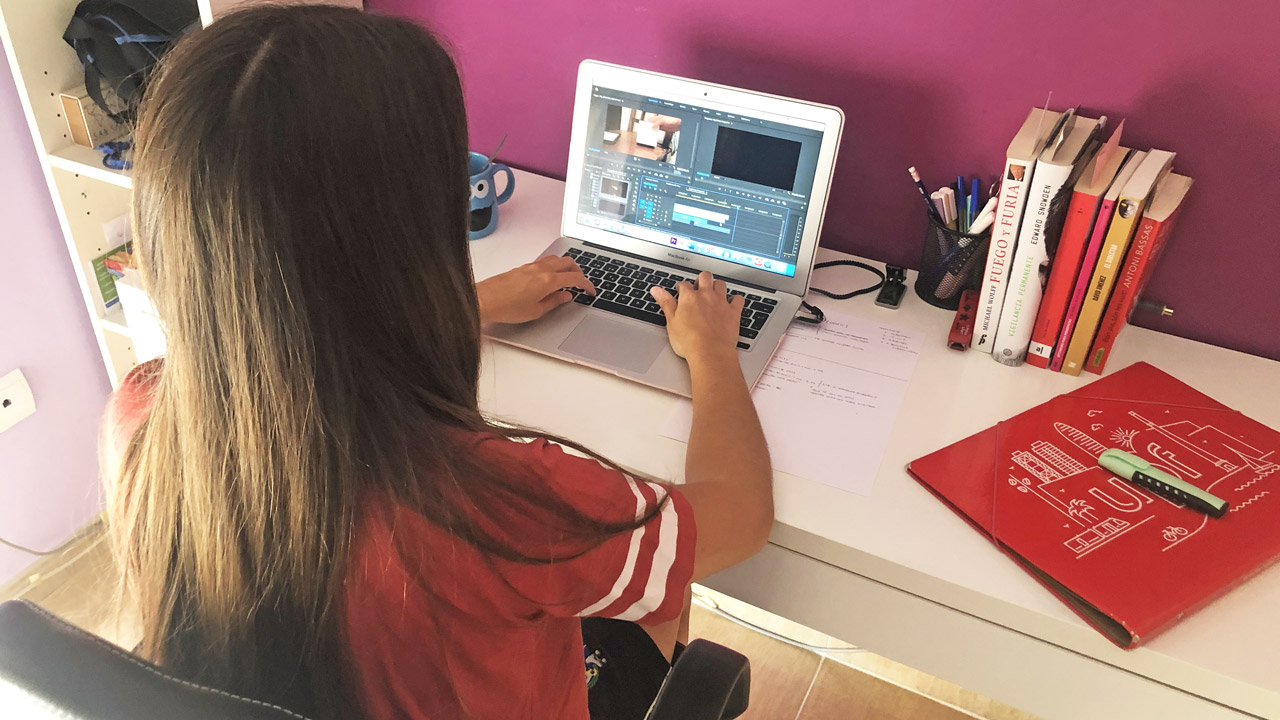
From the concrete floor of the Gutenberg Square, on the Poblenou campus, small tufts of grass are beginning to sprout, reaching up towards the sky. They are appearing all along the gaps between the tiles that stretch from the stairs leading out of the Roc Boronat building down to La Fàbrica, which houses the Library/CRAI. Today, it is only nature that silently contemplates a space that, throughout the year, is witness to the coming and going of students: some walking hurriedly to get to their class on time, others sunbathing in their breaks and still others enjoying the company of friends in the bar… They won’t be back until the next academic year.
The Ciutadella and Mar campuses are also playing host to this sad and empty landscape, which has been like this since 13 March, when the Catalan Government ordered the closure of all the Catalan universities to prevent the spread of COVID-19. From that point onward, bedrooms and, on occasion, even balconies became the new classrooms for the 10,336 degree students, the 1,229 master students and the 1,115 PhD students, who have all had to stay at home; and screens have become their way of connecting with the teachers and the University. The entire community has been plunged into a new situation, filled with uncertainties and not free of its hurdles; but it is determined to push ahead and finish the year online.
We spoke to seven UPF degree students to find out how they have adapted to the new situation and what challenges it has posed for them.
Pol Comas Pérez
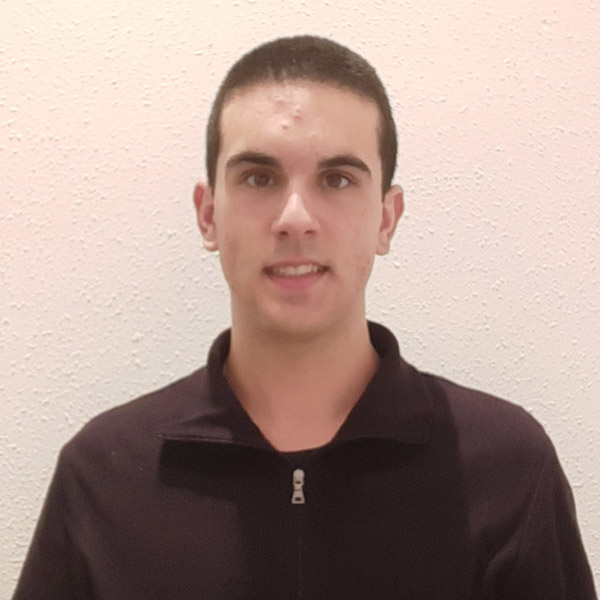
-
Degree: Economics
-
Year: First
-
Subjects: Microeconomics I, Mathematics III, Introduction to Company Law and Introduction to Accounting
“Because I’m a first-year student, I think that the recent change from baccalaureate to university has helped me to see this as just another change to adapt to. If I had been in a higher year the change would have been more noticeable, but I hadn’t even had time to get into a routine when everything changed again. It’s helped me to have a more open mind to change.”
Mateo Cabrero Giménez
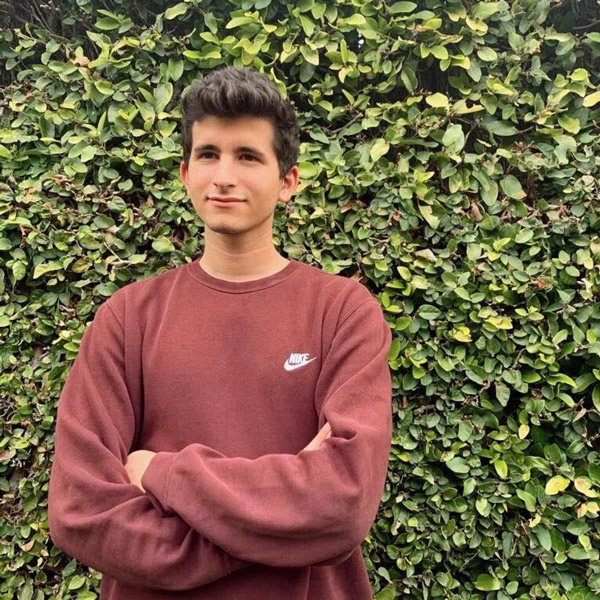
-
Degree: Law
-
Year: Second
-
Subjects: Financial Law, Activitiy of Administrations, Criminal Law: Special Part and Fundamentals of Private and Business Law
“The current situation hasn’t affected my studies that much. In the mornings, I am usually in class and in the afternoons I study by myself. First I do two hours of going over my notes and then I spend a couple of hours preparing seminars. I still haven’t done any revision as the exams are a long way off. I would even say that thanks to the confinement I have more time on my hands than before and I get less distracted when I’m alone. All this goes into making my studying more efficient.”
Maria Almendros Viladerrams
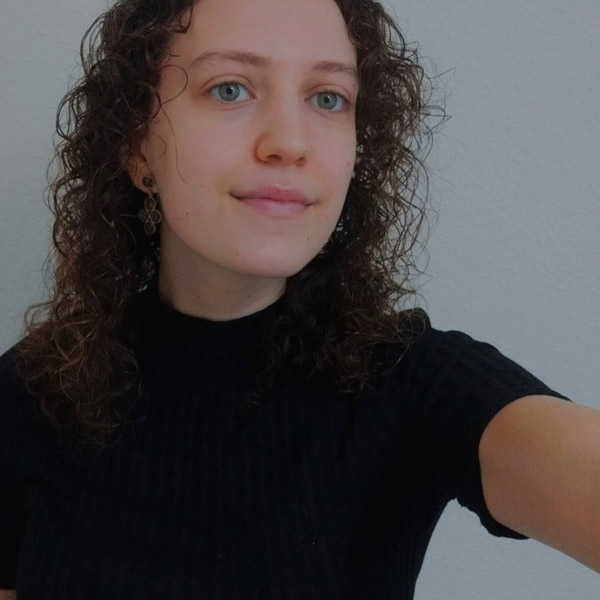
-
Degree: Humanities
-
Year: Second
-
Subjects: French Literature, 19th Century Art, Catalan Literature and Contemporary History
“I think that if you’re responsible by nature then you will always be responsible, whether studying face-to-face or not. So for me, it’s inevitable that I still worry. Maybe when it comes to studying you’re a bit more relaxed, but I still take notes and, when the time comes, I’ll also write out summaries of my subjects to prepare properly for the exams. I would even say that virtual learning stresses me more for fear of having some kind of technical problem and not being able to resolve it.”
Nerea Oliver Pallàs
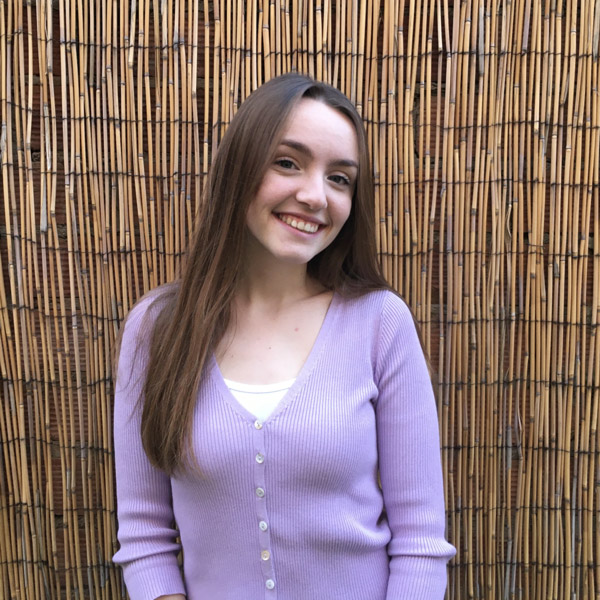
-
Degree: Applied Languages
-
Year: Third
-
Subjects: Language, Writing and Translating I (English), Language, Writing and Translating II (German), Multilingualism, Language Teaching and Language Services in Organisations
“During the year I live in a flat with other students and going home at the weekend was a way of disconnecting from the University. In Barcelona, I used to go to the library so I would feel the “peer pressure” of getting down to studying. I still study, but I get much more easily distracted and find it difficult to get down to work here at home.”
Joana Garreta Passola
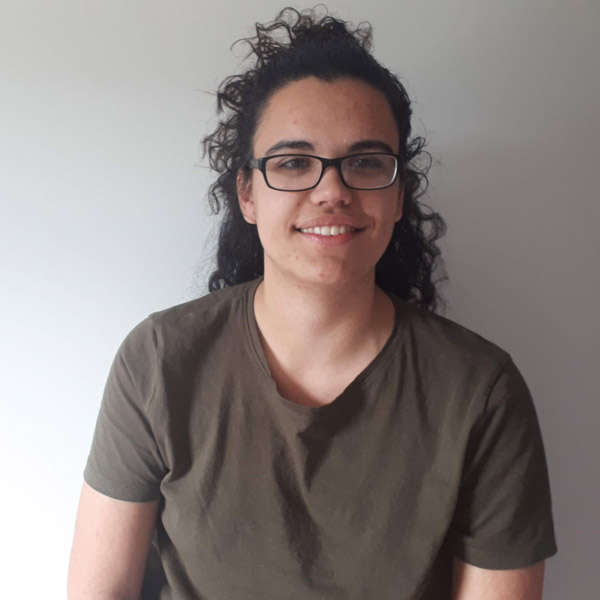
-
Degree: Journalism
-
Year: Third
-
Subjects: Integrated Journalism Workshop, News Agencies, Political Journalism and Dynamic Database Journalism
“Since the first year, I’ve been coming to the University for between 8 and 12 hours every day, and going from always being there to never being there is hard for me to get my head round. Journalism is not a science and you often have doubts as to how to do it or whether or not a word is the right one. Having people around you really helps in that regard. We all have different viewpoints and sharing them is enriching. The connection with other students and the teachers is vital.”
Victor Ubieto Nogales
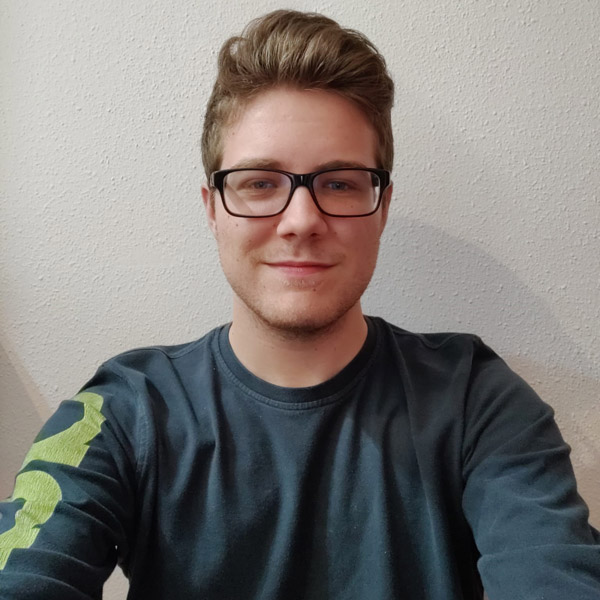
-
Degree: Audiovisual Systems Engineering
-
Year: Fourth
-
Subjects: Real Time Graphics and Degree Final Project
“In my case, the most important thing I have to do is the Degree Final Project and I don’t have a specific timetable. More than organising yourself, I think the important thing is to keep up your motivation, and you can do this by finding a balance between work and free time, set yourself goals and get help from your family and friends when it’s not working.”
Arnau Moral
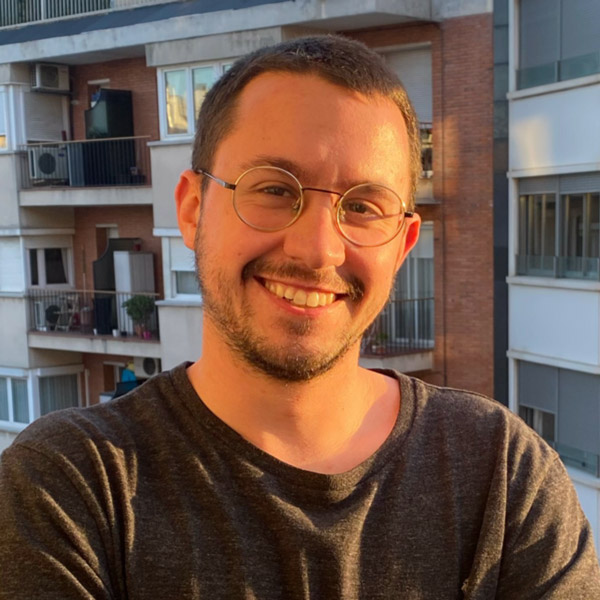
-
Degree: Biomedical Engineering
-
Year: Fourth
-
Subjects: Advanced Biomedical Image Analysis I: Segmentation and Quantification, Planning and Guidance of Minimally Invasive Surgery, Modelling Complex Diseases and Neurosciences and Humanities
“This is the first time I’ve done online classes, but once you get through the first class and you understand how it all works and what kinds of problems can arise during a session, it feels like you’ve been doing it for years. We should also bear in mind that it’s very different for our generation. I think that in this respect, the ones who have suffered most are some of the teachers.”
The metamorphosis of spaces
Office chairs have replaced the folding chairs found in most of UPF’s classrooms and the clamour of the minutes before starting a class is now just a murmur from the other inhabitants of the home. Each student has had to make themselves a space, sometimes sharing it with others, and adapt it, turning it into their own private classroom. “Studying at home has been a change for me because the atmosphere is more calm and I find it harder to get down to work. At the University, everything is more dynamic, you feel like you’re in the right environment and the people around you give you energy and help you to keep going”, says Pol Comas, a first-year student on the degree in Economics. For most, the space has represented a very big change, more even than the new virtual teaching tools
Before confinement, each place seemed to have its assigned function. The classrooms were synonymous with learning; the Library/CRAI, with study and concentration; and private homes, with disconnecting. Now that everything takes place between the same four walls, twenty-four hours a day, “we’ve had to adapt everything to a single space”, says Nerea Oliver, a third-year student on the degree in Applied Languages. For Arnau Moral, a fourth-year student on the degree in Biomedical Engineering, the Library was “a space for concentration, free of distractions. I liked going there to study because there were times when my flat would literally descend into chaos”.
"Studying at home has been a change for me because the atmosphere is more calm and I find it harder to get down to work. At the University, everything is more dynamic, you feel like you’re in the right environment and the people around you give you energy and help you to keep going"
There are students, like Joana Garreta, in her third year of the degree in Journalism, who, because of their timetables, spend a large part of their daily lives at the University. “For three years I practically lived there: studying, toing and froing, talking with people, doing activities… The change from being there all the time, to not being there ever is hard and comes as a shock”, she explains.
A change of paradigm in a digital generation
In the subject Financial Law, which is given in the second year of the Law degree, the teachers do virtual classes through Collaborate, a tool that allows you to do video conferences in which students can participate and, simultaneously, share the screen, create a shared blackboard and comment on work directly online. It is also used in Political Journalism, an optional subject on the degree in Journalism, to teach theory, work on the practical part and, even bring guests from the political world to the sessions. In the last few weeks, Collaborate has become the star resource for virtual teaching, despite the fact that for most people this has been the first time they have used it. “I had never used any kind of tool to do virtual classes, but in a couple of classes you understand how it works perfectly. They are highly intuitive and very complete applications with special features like the button for putting your hand up to ask a question”, explains Mateo Cabrero, a student from the second year of the degree in Law.
Most UPF students belong to what is known as the “millennial” generation, a digital generation that has grown up with technology. So it is not surprising that they can easily familiarise themselves with and learn how to use these new applications. “I think that in this respect, the ones who have suffered most are the teachers”, reflects Arnau Moral. Nonetheless, the fact that they have mastered these applications quickly does not mean that it has been easy to adapt, as for many students, this is also the first time they have tried distance learning. “We’re used to face-to-face classes, and this is a big change”, asserts Nerea Oliver.
“I think that in this respect, the ones who have suffered most are the teachers”
From when she was little, her idea of a class has been associated with the figure of a teacher giving a lesson physically, while the students listen, take notes and ask questions. And although online classes are increasingly common, such an abrupt change of paradigm, with the added complication that each teacher has sought out different alternatives for teaching their content, has changed how she studies. “It might seem a bit silly, but we’ve always learnt because someone has explained things to us and, suddenly, without choosing it, we find that we have to read materials and, from there, we have to find the subject matter”, reflects Joana Garreta.
Different paths towards adaptation
The feeling students have faced with the new situation are highly diverse and depend on many different factors. “In my case, I haven’t noticed a massive change because, at the end of the day, the content is the same. There are teachers that have opted for virtual classes and others for a more autonomous style of learning; but they are very open to helping us with any doubts we may have via email or with virtual sessions”, explains Mateo Cabrero. “I feel that my teachers have organised and adapted the subjects really well. That said, with the face-to-face classes, a lot of the work was done in class, while with virtual teaching, the feeling is that there is twice the work because we do it all at home, and in a more autonomous way”, says Nerea Oliver. Víctor Ubieto, a fourth-year student on the degree in Audiovisual Systems Engineering, admits that at times he has “the feeling that the virtual classes are not working”; but that “it is our duty to make an effort, understand the situation and help the teachers to normalise it”.
Many miss the close relationship with the teachers, which they had with the face-to-face teaching. “For me, the relationship with the teachers has always been very direct. You could ask questions, comment on how you have understood something… There was a lot of feedback and enough closeness not to feel afraid to ask questions and make mistakes. This is still the case, but doing it online is less personal for me”, muses Joana Garreta. To try to maintain this link as much as possible, video conferencing tools like Hangouts or Jitsi are used to do some seminars, tutorials or the sessions for clearing up doubts. “I think that some of the fluidity has been lost when it comes to interacting and setting up debate between teachers and students. Although, in my case, the teachers are doing everything possible to make the classes more enjoyable and to avoid us getting stuck halfway”, considers Mateo Cabrero.
Maria Almendros, a second-year student on the degree in Humanities, is studying the subject 19th-Century Art, in which it is very important to be able to see a work of art while it is being discussed. “Sometimes, I can’t do it because my WiFi isn’t good enough, and it’s frustrating”, she admits. The access to resources is not the same for everyone and some students are having to deal with technical difficulties, such as a losing connection, cameras that don’t work properly or microphones that haven’t got good sound; obstacles that were not so recurrent before and which they also have to adapt to. “I prefer the classes when the teachers record the content at home and then post it on the Aula Global. I find these classes more concise and better organised”, she explains, referring to one of the formulas that many of the teachers are using.
Group work has also become a great challenge. Although most students are familiar with doing group projects through Google Drive, it’s often not that simple. “I need to see people’s faces to approach a project, to see that we are all on the same page, and then I feel happy about doing it remotely. But without that first meeting I find it difficult”, explains Joana Garreta. Students use the call and video call options of Hangouts, Skype or WhatsApp to work together, resolve seminars and exercises and discuss doubts.
The challenge of doing practical subjects online
On certain degrees at UPF, the practical part is as important, or more so, as the theory, and taking certain subjects from home is posing a great challenge. This is the case for the Integrated Journalism Workshop, a 100% practical subject in the third year of the degree in Journalism. Throughout the year, a real newsroom is simulated, which is equipped for radio, television, the press and Internet, where the students can experience how the work is done. Transforming this to the distance learning format is a great challenge, especially for students doing radio and television, who normally use the radio studios and the TV set in the Tallers Area, and various university resources, like cameras. “We’re doing videos with our mobile phones at home, often without microphones or good lighting. We use plans as an internet resource and record interviews by video call”, explains Joana Garreta, who is currently doing the television section. They are also exploring new forms of entertainment such as YouTube, beyond the news pieces. To edit, they use the MyApps platform. “We’re getting on with it and it’s working for us. It’s hard, but, in my case, I’m finding ways to do what I can to keep learning despite the situation”, explains Joana Garreta.
It is also a challenge for fourth-year students that are working on the degree final projects. Volumetric Rendering using Graphs is Víctor Ubieto’s project and consists in implementing a system of nodes for users with no programming knowledge to be able to use an algorithm that allows them to visualise 3D volumes without the need to programme any lines of code. In his case, “I had already done quite a bit of the field work and research before confinement”, and the only obstacle he has come up against is that “now it’s harder to meet with my tutor, as they are overloaded with work. All we can do is accept the situation and try to find solutions”, he concludes.
“We have had to ask some of the protagonists to record themselves answering the interview questions and then send us the videos”
For those projects with a more practical side, such as some of the communications projects, students have had to come up with creative solutions and find new ways to film, for example, a documentary. This is the case for Mercè Alonso and Eva Jou, fourth-year students on the degree in Journalism, who are doing a documentary on the precarious nature of the world of theatre. “We have had to ask some of the protagonists to record themselves answering the interview questions and then send us the videos”, they explain. As for the editing part, the initial idea, which was to do it together using the computers at the University, has now been ruled out and they have divided the work into blocks. “For example, I use MyApps to edit a block where four actresses are talking about how at a certain age it is more difficult to find work and post it on the Drive, from where Mercè downloads it and puts it all together using the free trial of Adobe Premiere”, says Eva. They accept that the end result will be different to what they had planned, but they are proud to be able to offer a final product.
Generating new routines between four walls
First-year students were just getting a flavour for life at the University when its closure was ordered. For the last year, a lot of them have had to deal with change after change, and perhaps that is why they have approached the situation more optimistically. “The leap from baccalaureate to university has helped me to have the feeling that this is just another change we need to adapt to. I hadn’t had time to get used to things or get into a routine, when everything changed again”, reflects Pol Comas. He does think, however, that if he was a student from one of the subsequent years, that it would have been much harder for him.
“I hadn’t had time to get used to things or get into a routine, when everything changed again”
Víctor Ubieto, who will finish his degree this year, “misses the life he had before”, but “a worldwide pandemic is a serious enough reason to accept the new situation and keep going as best we can until the end”. For him, his routine has not changed that drastically, because he is only doing one subject now, although “the time I spend studying and doing assignments has increased”. Now more than ever, each student’s personal and family situation is a key factor and, at times, it makes it difficult to establish a regular study routine or adapt the one from before.
Some students have been able to follow the timetable they already had set up. “I organise myself in the same way: in the mornings and some nights I work and in the afternoons and evenings I am busy with face-to-face classes”, explains Nerea Oliver. Other students, like Joana Garreta, haven’t set themselves any kind of timetable; for the time being “I do things how and when I can, although at the University I could do my work much more quickly because I had more resources and had a working rhythm. My routine depends on the work I have, how urgent it is and what is going on at home”. There are some who have never had any kind of routine, like Arnau Moral, who explains that “more than a timetable for studying, I follow a timetable for working that makes my day-to-day more enjoyable. After classes, I note down the main points and see how they can improve their projects”. He also forms part of UPF Makers, an initiative to print protective visors for healthcare centres using the University’s 3D printers, and he combines this with his studies. He admits that at the beginning he could produce more than he can now, as he has more reading to do; but that they are getting done “bit by bit, even though it’s not much. Everything we do will help somewhere in the city”.
“I do things how and when I can, although at the University I could do my work much more quickly because I had more resources and had a working rhythm”.
She combines her study times with activities she often liked doing in her spare time, and which she has also had to adapt to a single space. “I have always been a very active girl who was always on the go all day long and did a lot of extracurricular activities. Now, I’m doing exercise in the garden or at home and I also use my free time to play the piano and the cello”, explains Maria Almendros. Other students use the early afternoon hours “to read a good book in the sun, watch a series or take a nap”, admits Mateo Cabrero.
The new university life
The University is much more than just the teaching. University life is, for most students, a key part of this stage in their lives, and sharing free time with their fellow students and participating in the different activities that are organised during the year on the campuses is as important for them as studying. Now, all of that has also been moved over to the screens, which have become the new squares and bars where students used to be able to “disconnect as part of their routine”, in the words of Arnau Moral.
For this reason, many students reserve a few minutes each day to meet with friends and fellow students using calls and video calls on WhatsApp, Hangouts or Skype. “Personally, I recommend setting aside a few hours every day to be able to chat and have fun”, says Víctor Ubieto. Although it’s not the same as meeting everyone at the University. “I miss seeing the other students, especially those that you’re not close enough to to make a video call, but who in class you’ve always shared a few words with before the teacher arrives”, says Maria Almendros. For Arnau Moral, the new situation has deprived them of “more than the beers in the square, which is also important, it’s the ‘how was the weekend?’ on Mondays, the stories and anecdotes we shared between classes, the jokes and the outbursts that, even if only for a few seconds, allowed you to disconnect for a moment”. Often it’s these moments, which were never given much importance before, that make adapting to the new situation most difficult.
